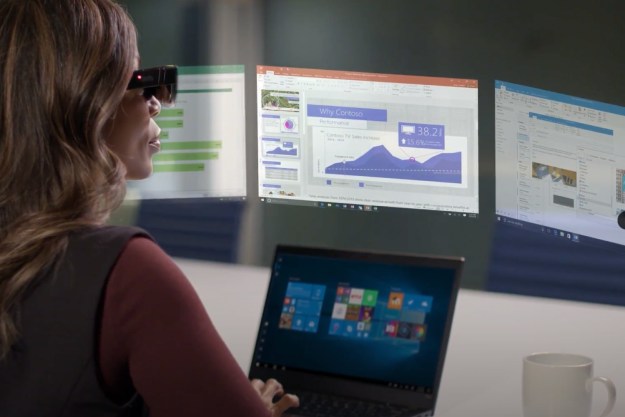
Augmented reality (AR) has come a long way over the last few years, serving as a tool to improve GPS capabilities, aiding medical students in performing virtual surgery, and offering entertainment like Pokémon Go and SpecTrek. Now, consumers can modify the design of their home thanks to the new Cambria AR app.
The Minnesota-based maker of quartz surfaces and countertops selected digital agency space150 to develop the app using Apple’s ARKit technology, which adds digital objects to your environment. Cambria’s product allows you to modify the appearance of countertops, tables, and other surfaces in your home.
Brian Peters, CMO at Cambria, believes the app is a game changer that will revolutionize the design industry.
“As the leader in stone surfaces, Cambria is adopting and bringing the remarkable technology to our consumers in a very simple but powerful app,” Peters said. “There’s no better way to see Cambria’s stunning designs than in your very own kitchen.”
You can get creative with your designs and test them on your surfaces through the app, giving you a clearer vision of how your ideas look with your home’s lighting, cabinets and floors. Cambria released a video that shows you how to use the app by focusing on each corner of the surface you wish to modify. Cambria AR then examines the lines that connect each corner, matching the shape and depth of the surface.
The user-friendly interface then displays a new virtual surface that matches its outline, showing multiple design styles you can choose from. You can then take pictures or video through the app so you can share your kitchen island’s potential new look.
Marc Jensen, chief innovation officer at space150, believes the move will put Cambria ahead of the pack in the design industry, as the company is setting “a new bar for the consumer experience, and solved a real challenger by making it as easy as possible to try before you buy.”
Other developers have also been using AR technology for artistic purposes, including InkHunter, an app that allows you to check out what a tattoo would look like on a certain part of your body, and Amikasa, which fills your home with virtual furniture.
The app is expected to be out in the Apple store in fall 2017.
Editors' Recommendations
- Dyson’s new AR mobile app shows where you forgot to clean
- You can finally move your WhatsApp chats from Android to iOS
- Apple’s new AR headset may use Face ID technology to track hand gestures
- Snap partners with Camo app creator to bring AR streaming to your phone
- Your iPhone is about to get a whole lot better at protecting you from app tracking

